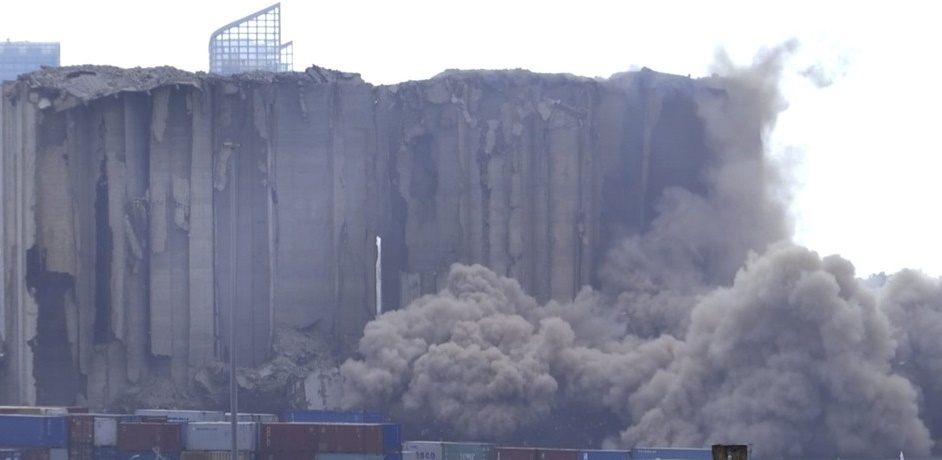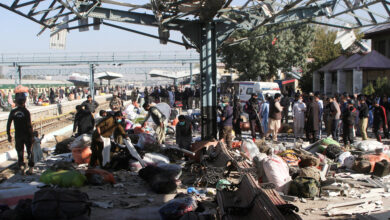Iconic grain silos collapsed in Beirut
The two grain silos in the port of Beirut have partially collapsed.

In the event of an explosion, they had held off the blast wave from the west of the city.
In the port of the Lebanese capital Beirut, the grain silos, which were badly damaged at the time, partially collapsed on Sunday, almost exactly two years to the day after the devastating explosion there. Local media reported two collapsed towers in the northern area of the silos, AFP journalists observed a cloud of dust over the port area. The collapse was expected, fires had been raging around the affected area for over two weeks.
Video footage showed a section of the silo collapsing, debris falling to the ground and a cloud of dust. The silo was hit particularly hard by the explosion in the port of Beirut on August 4, 2020. The detonation occurred because ammonium nitrate fertilizer stored without protective measures had ignited.
The tall silo towers, on the other hand, protected much of western Beirut from the effects of the blast. As a result of the accident, more than 200 people died and over 6,500 were injured. The investigation into the circumstances of the accident had been hampered for political reasons for the first few weeks. Relatives of the victims and non-governmental organizations accuse the authorities of systematically concealing their possible joint responsibility.
Warnings from last week
The acting prime minister of Lebanon, Najib Mikati, had already warned last Wednesday that the damaged silos could collapse. The army should prepare for a collapse; Workers, civil defense workers and firefighters had been told to keep a safe distance from the towers. Citizens should wear respirators around the silos in the event of a collapse.
BEIRUT: The grain silos of the exploded Port have just collapsed, following 2 years of neglect & fires in structure. Video stands as a perfect metaphor of #Lebanon the decaying state…pic.twitter.com/gW5JIHiRiE
— Joyce Karam (@Joyce_Karam) July 31, 2022
Two weeks before the partial collapse, fire broke out in the silos after the grain stored there had ignited, according to the authorities, as a result of fermentation processes favored by the summer heat. According to Mikati, around 3,000 tons of wheat and corn were still stored in the towers, but according to official information they could not be removed because this would have accelerated the collapse.
In April, the Lebanese government ordered the remains of the silo to be demolished. However, the work had been interrupted – among other things because relatives of those who died in the explosion in August 2020 had demanded that the ruins be preserved as a place of remembrance.
The silos in the port of Beirut had a storage capacity of more than 100,000 tons before the explosion. After the accident, their 48 meter high remains were a kind of memorial for the explosion.
Death toll rises to 163 at Beirut blast
Macron hosts donor conference for Beirut Blast
Lebanon declares emergency in Beirut

